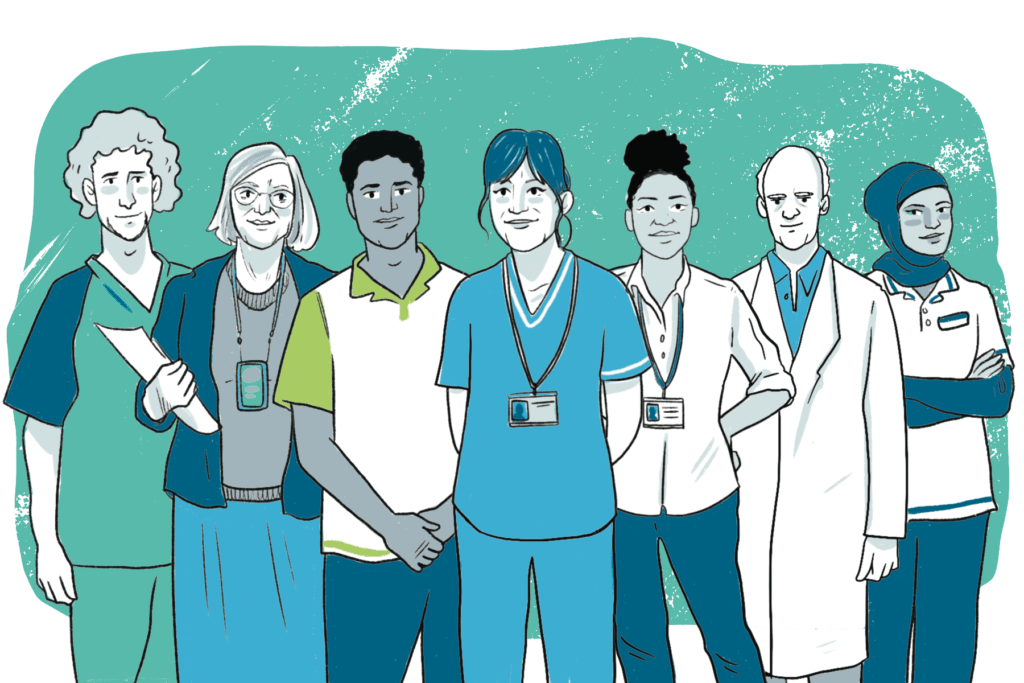The Edinburgh Psychological Support Project
Clinical psychologist Dr Gráinne O’Brien (second from the right in the photograph) started work in January of this year offering psychological support and talking therapies to people with inherited bleeding disorders and their families.
Research suggests that both adults and children living with chronic conditions are 2-3 times more likely to experience emotional and behavioural difficulties compared with those without. It is estimated that around one-third of adults with haemophilia will have depression and/or anxiety at some point in their lives.
People living with haemophilia can experience a reduced quality of life. Anxiety and/or depression can impact upon various areas of anyone’s life, including socialising and activity levels, relationships with family and friends. For those living with a bleeding disease, there can be additional impacts on adherence with prescribed treatment (e.g. prophylaxis), missed clinic appointments or engaging in unhelpful coping strategies such as alcohol or drugs.
Some things people may want to talk about include:
- Coping with and adapting to having a bleeding disorder
- Feeling overwhelmed by being ill or in hospital
- Feeling depressed, anxious or angry about your illness or treatment
- Managing fear about treatment, like fear of hospital or needles
- Coping with pain
- Relationships with family, significant others or friends
- Preparing college or moving on to adult services
- Family-planning concerns
- Sleep problems
- Challenges associated with having received infected blood products
- Dealing with the loss of a loved one who may have received infected blood products.
As well as introducing Gráinne to patients attending the centre we publicised our new service to patients through our local patient group Haemophilia Scotland and carried out a mail trawl, initially to patients with haemophilia. Early feedback from patients has been very positive:
- “Being able to talk through often difficult, personal topics with someone who has no emotional investment in my life but who has a professional commitment and understanding is very important to me.”
- “It’s refreshing to be able to let things out because I have said things to the psychologist I haven’t said to other people, even my mum and dad.”
Gráinne has also brought a psychosocial perspective into multi-disciplinary team meetings where we discuss challenging cases at which we reflect on how the team can best support the patient moving forward. This gives a much more holistic approach to care. Alongside this we have found this brings an important and supportive perspective aspect to the whole team, allowing us to acknowledge the challenges often felt by individuals and knowing that we are tackling them together.
We are still learning and developing the service to meet the needs of our patients and hope to feedback at one year into the project. Gráinne has started a psychologist group on Haemnet; anyone interested should either join the group or email Gráinne directly.


